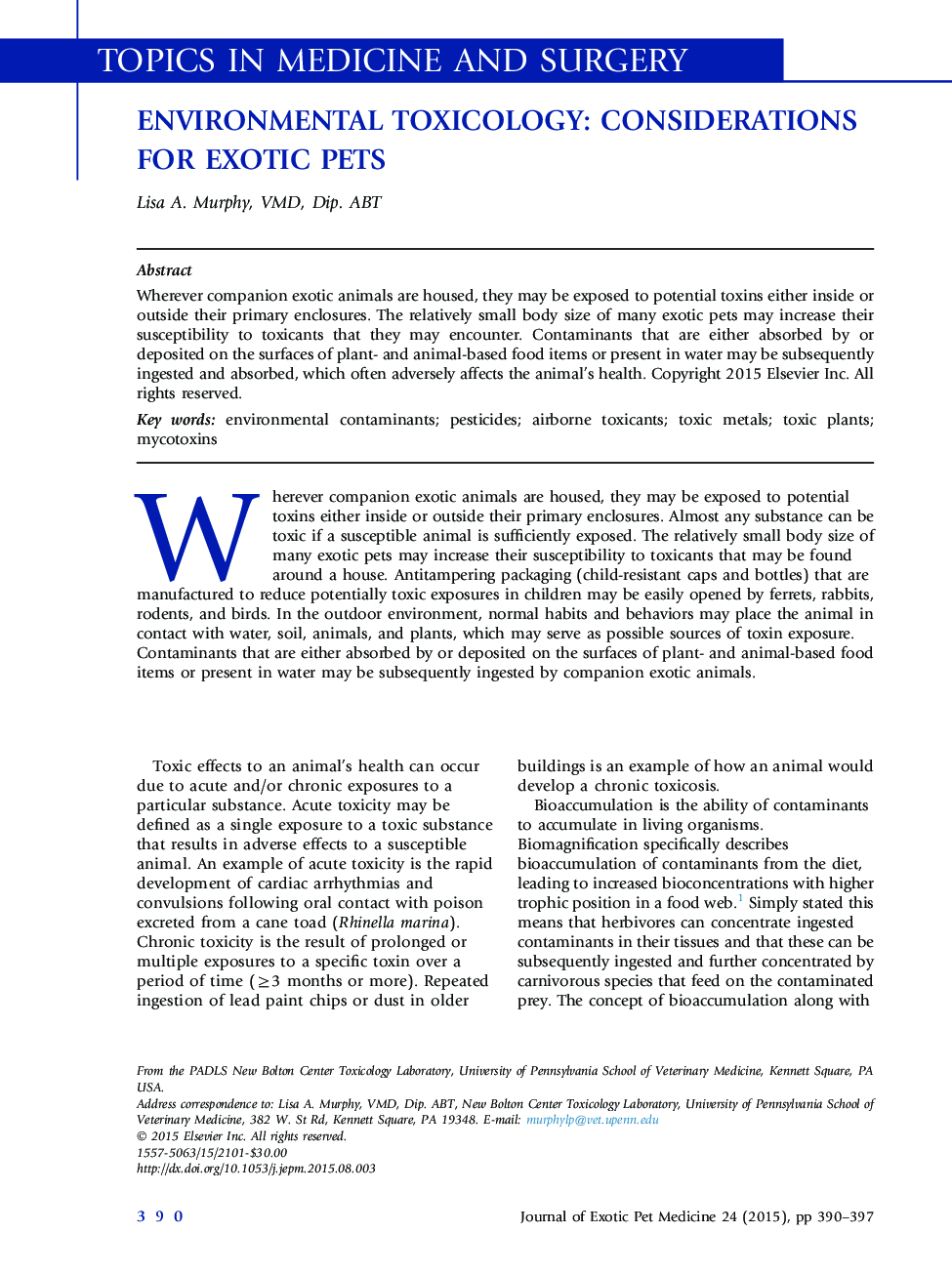| Article ID | Journal | Published Year | Pages | File Type |
|---|---|---|---|---|
| 2396856 | Journal of Exotic Pet Medicine | 2015 | 8 Pages |
Abstract
Wherever companion exotic animals are housed, they may be exposed to potential toxins either inside or outside their primary enclosures. The relatively small body size of many exotic pets may increase their susceptibility to toxicants that they may encounter. Contaminants that are either absorbed by or deposited on the surfaces of plant- and animal-based food items or present in water may be subsequently ingested and absorbed, which often adversely affects the animal’s health.
Related Topics
Life Sciences
Agricultural and Biological Sciences
Animal Science and Zoology
Authors
Lisa A. Murphy,
